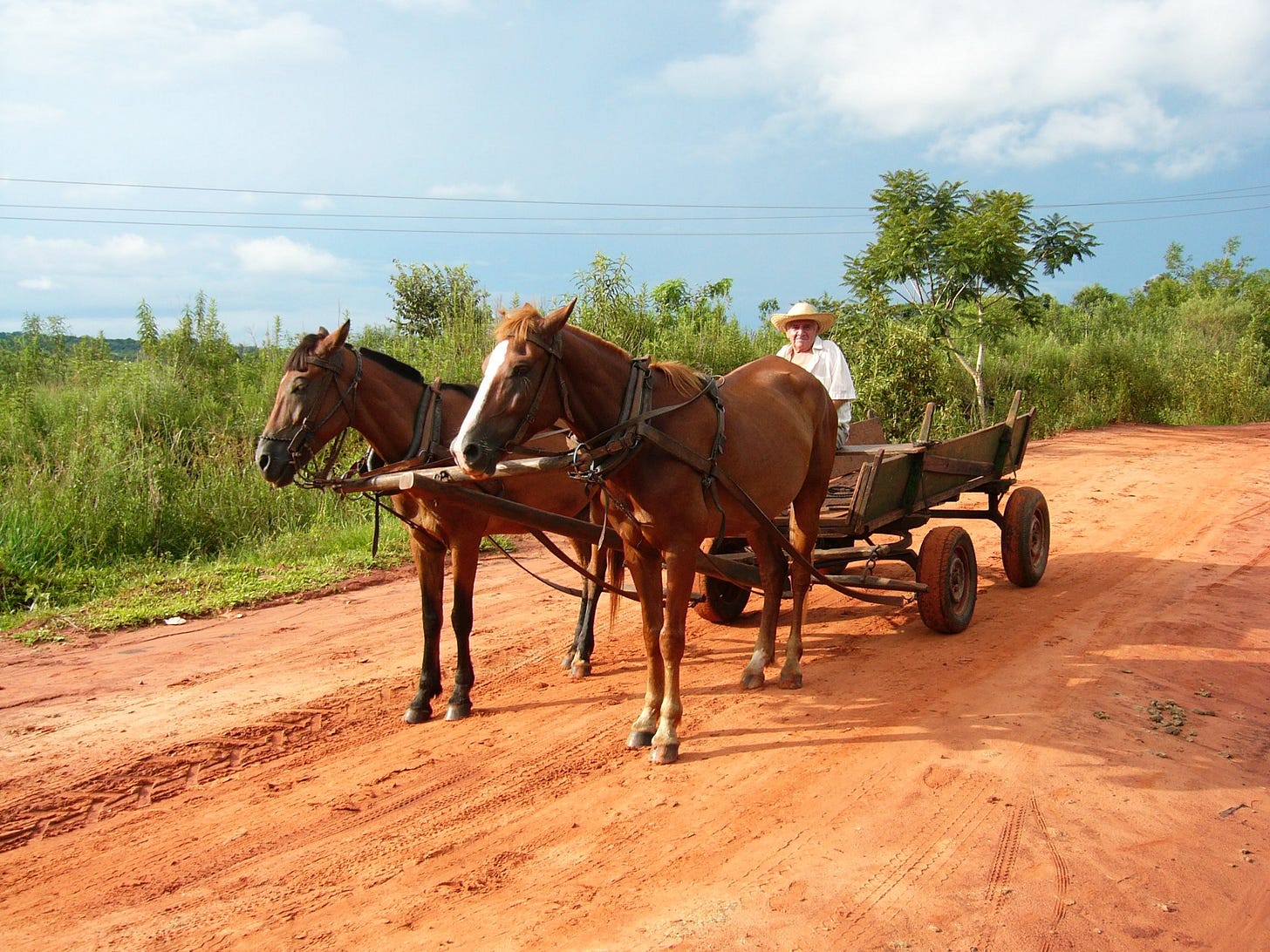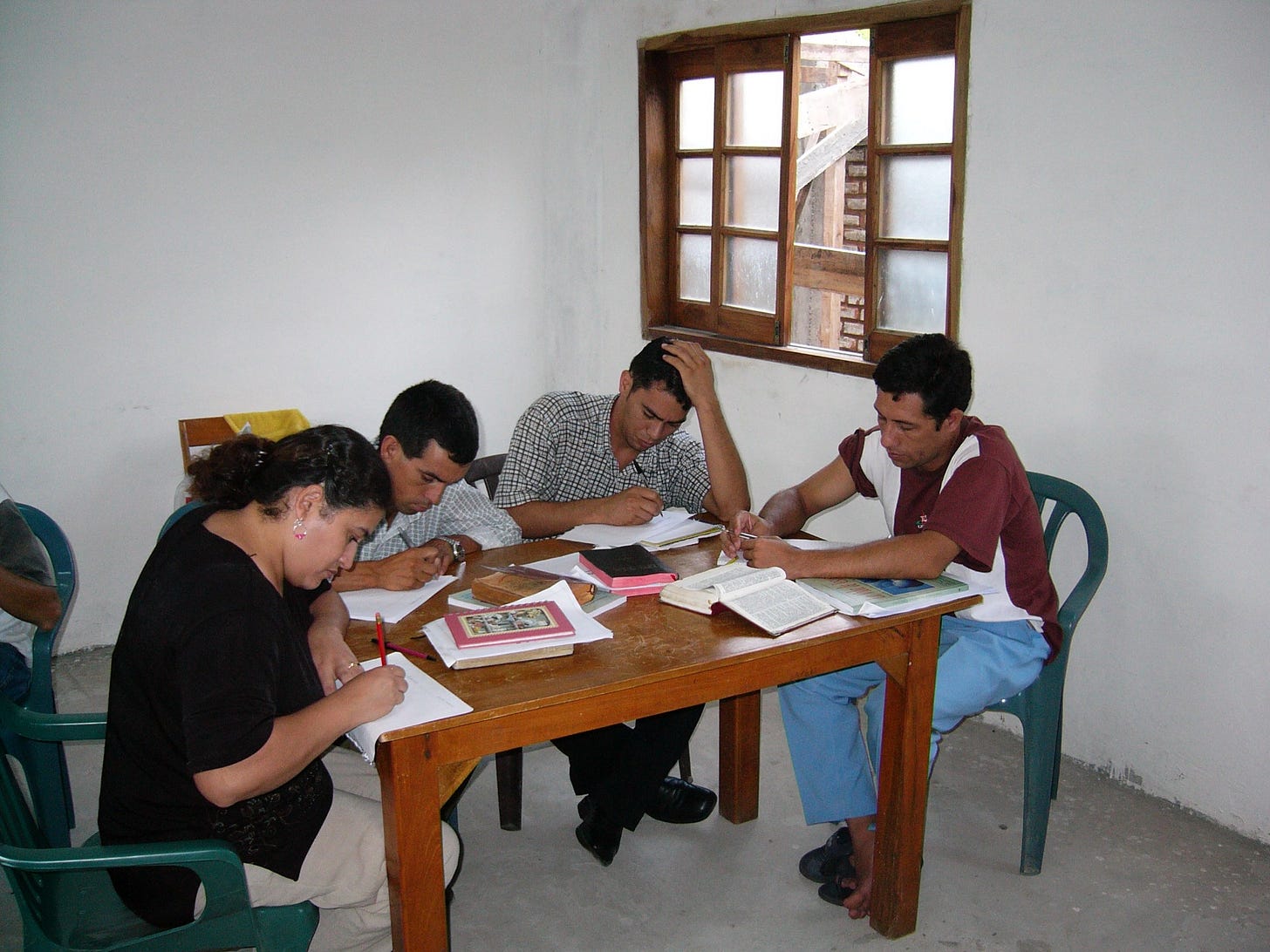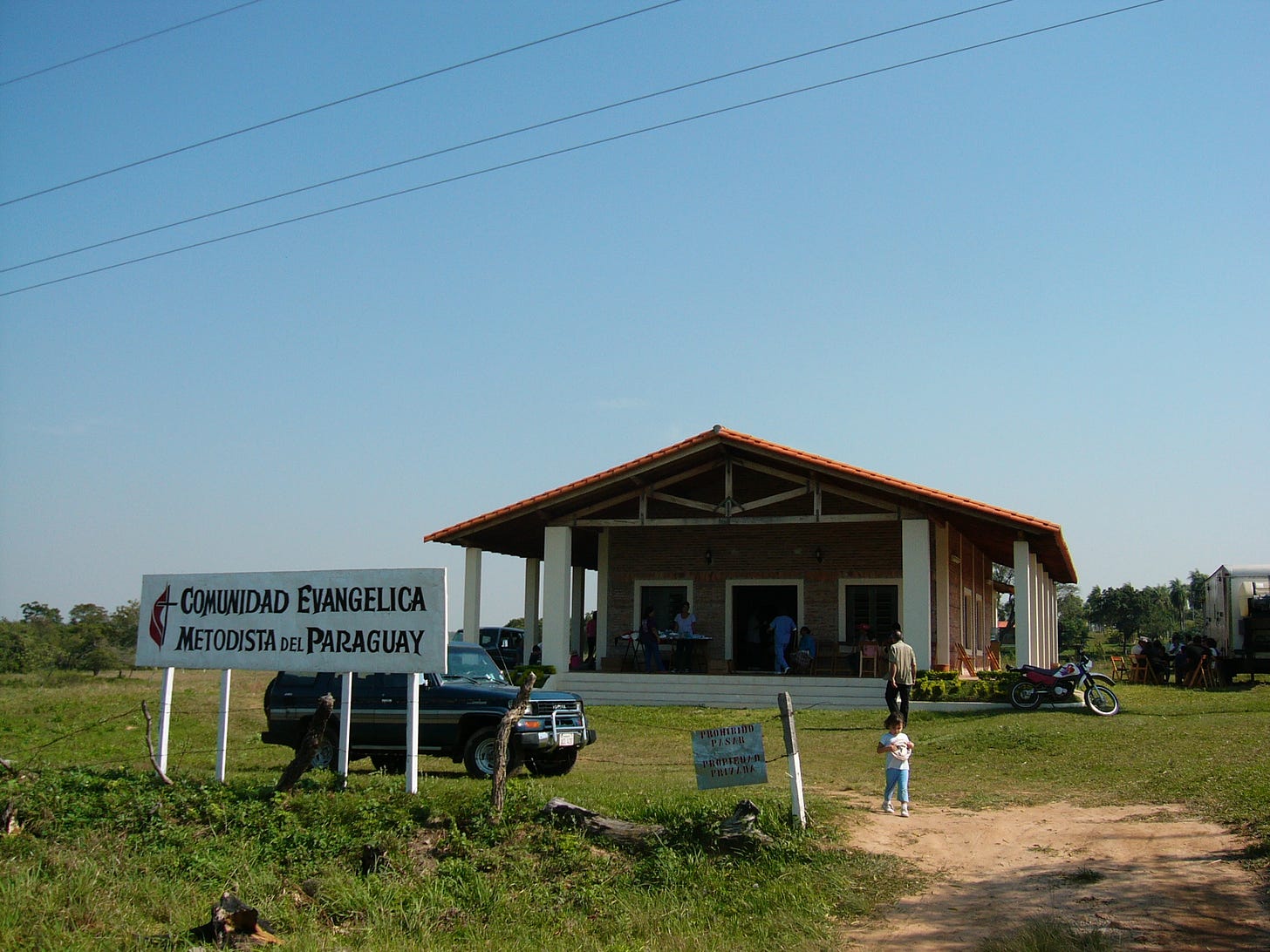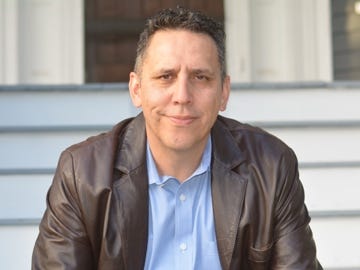Stage Three - First Mission in Paraguay and a Second Master's (2004-2009)
...
Welcome to Tuesdays with Doctor G, where I share my journey of teaching and deconstructing the Bible over two decades of ministerial work and the aftermath of that transformation.
Through these reflections, I aim to cultivate a soulful revolution—a radical and open spirituality inspired by the life of Jesus that speaks to those wounded by institutional religion or who wrestle with its darker realities.
This is the third post in a series entitled "My Deconstruction of the Bible in Six Stages."
The Difficulty of Telling This Story
Before proceeding to the next stage, I want to recognize the difficulty of telling a story like this—one that is both beautiful and painful, and speaks honestly about the challenges I experienced in the church and ministry.
For thirty years, my family and I were integral members of Park Street Church, serving on committees, leading ministries, and twice venturing overseas to develop pastors and leaders for the church in the Latin America.
As I write, memories flood my mind—the joyous and smiling faces of devoted colleagues, passionate students, supportive friends, and countless brothers and sisters who welcomed us with open arms in the churches where we ministered overseas. These relationships were the heart of our life and ministry, spanning churches, seminaries, and faith communities in the U.S. and across Latin America.
Yet love compels me to speak frankly. Christianity, despite everything good and wonderful that it represented, kept causing unintended harm. During my time on the field I repeatedly witnessed how certain doctrines and structures and a particular approach to the Bible bred spiritual anxiety, doctrinal conflicts, legalism, exclusion, and even abuse. This is not a story of condemnation, but of seeking truth and reform. Also, it is a narrative I tell with tremendous love and respect for the spiritual communities that shaped me.
Our First Mission in Paraguay
In 2004, Park Street Church commissioned our family to serve in Paraguay, a bean-shaped, landlocked nation tucked away in the heart of South America that few could even locate on a map. There aren’t many experiences as exhilarating as moving to a foreign country to fulfill a mission I believed was divinely placed on my heart.
With our three young children in tow (ages 6, 4, and 2), Rochelle and I embarked on a spiritual journey, arriving in one of the poorest countries in the continent.
We spent four adventurous years in Paraguay, two in the crowded capital of Asunción and two more in the charming colonial town of Yaguaron—population 7,000, if you don’t count the oxen. These gentle beasts would lumber down the cobblestone streets past our home, occasionally pausing to poke their noses through our shutters.
Our house had no windows, only metal bars to guard against thieves.
I spent those years teaching at a Bible institute, training pastors and church leaders for a national denomination. My vision was idealistic yet sincere: equip these leaders with solid biblical training, and they could help the church mature and overcome its deeply entrenched challenges.
Thus, once a month, students would travel from across the country, staying on campus for a week of intensive coursework, with room and board provided.
Alongside my teaching, I pastored a small rural church of fifty members, nestled at the entrance of a lush seventeen-acre campground owned by the denomination. I was completely fulfilled in my vocation, brimming with purpose and passion.
Yet, tension simmered beneath the surface. While I was driven by a vision of nurturing and growth, our ministry partner embodied a markedly different, and far more demanding style of Christianity.
The Weight of Legalism
Our first real difficulty in Paraguay wasn’t adjusting to the culture, it was the weight of legalism that dominated the church. From the top down, denominational leaders and pastors were constantly policing behavior.
Christian don’t do those things, wear those clothes, or watch those movies. One youth pastor in particular was disciplined and stripped of his ministry for an entire year for telling the kids that it was OK to listen to secular music.
On another occasion, I walked into a church one day wearing a soccer jersey, and was promptly scolded. The reason? because Psalm 1 says, “you should not sit in the seat of mockers.” Ummm, in a country where soccer is practically a sacred national ritual, this was probably not a winning evangelistic strategy.
I call this form of faith straightjacket Christianity, and it was suffocating.
Authoritarian Leadership
Another difficult and distressing challenge we faced was an authoritarian leadership structure in which the pastor reigned as an unquestioned authority—always a man, as women were excluded from pastoral roles. The hierarchy was clear: God speaks to the pastor, and the pastor speaks to the congregation. After all, this was the way God spoke to Moses, King David, and the prophets of old.
One small but telling example came during my very first interview of prospective students for our Bible Institute. I was sitting in, learning the ropes, when I heard the first question posed to those preparing to dedicate three years of their lives to studying the Bible, theology, and church history:
“Do you submit to the authority of your pastor?”
I nearly fell out of my chair.
Coming from a Neo-evangelical church with a congregational model, led by a pastor alongside twelve elders, I was unprepared for such an emphasis on unquestioning obedience to a leader. During four years of ministry, time and again, I witnessed pastors publicly scolding congregants during sermons, dictating ministry assignments regardless of personal objections, and reinforcing a rigid hierarchy where submission was paramount.
I’ve always believed that those who speak the loudest about spiritual authority, are the least qualified to exercise it.
What Was the Cause?
At the time, I didn’t fully grasp what was driving such toxic behavior. Again, I believed that if pastors had a better understanding of the Bible, we could curb or even eliminate these harmful dynamics.
That’s why I was there. And that’s why my family had to be there as well, at great sacrifice to them.
It would take many years before I began to recognize the true source of the problem— the Bible itself, or rather, a particular approach to the Bible.
Serving in Paraguay was one of the great highlights of my life, yet in hindsight, it was also among the most spiritually stressful. It’s difficult to overstate the strain of living in a Christian environment where obedience to the Bible and submission to its preachers are held up as ultimate virtues.
The Beauty Amidst the Challenges
Despite the challenges, our years in Paraguay were filled with beauty, adventure, and deep connection, and I would be remiss if I didn’t mention, that I fell in love with soccer after witnessing my first World Cup while cheering for Paraguay’s national team.
I cannot overstate the warmth and hospitality of the people we met, the privilege of serving as a family in a cross-cultural context, and the friendships we formed with fellow pastors, missionaries, and students.
My students deserve special mention. Despite the great sacrifices they made to show up every month, they were always passionate about their faith and eager to learn. It was a teacher’s dream, and I remain humbled by their example.
A Shift in My Theology
In 2009, we returned to Boston, and I embarked on a Master of Theology (ThM) in New Testament in preparation for doctoral work the following year. I took classes outside of the evangelical bubble at institutions like Harvard Divinity School and Andover Newton, where I was exposed to a scholarly world that contradicted what I had previously understood about biblical interpretation.
Here, the Bible was no longer an inspired text handed down from God, but a complex historical document shaped by human hands, contexts, and understanding.
But even as I was learning new and more liberal ideas about biblical interpretation, I did not lose my faith in the Bible, nor was my faith in peril. Nevertheless, my experiences in Paraguay began to cast long shadows over my spiritual life. I could no longer comfortably wear the label of evangelical. "Moderate Christian" became my tentative new identity.
At the heart of my struggle was this tension: How could a message so life-giving, so transformative, be packaged in a framework that also caused this much harm and abuse? This was a question that would haunt me for the rest of my ministerial career until I finally had a satisfactory answer.
But you’ll have to read to the end to understand how I solved that thorny knot.
As I prepared for doctoral studies, I did recognize that my theological foundation was slowly being eroded. A deep dive into comparative religions in my PhD, and my experiences of teaching in a Bible College in Colombia only widened those cracks.
Til the next stage.
Gustavo







